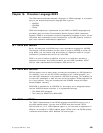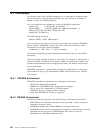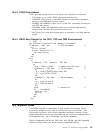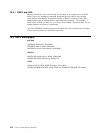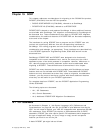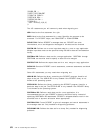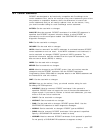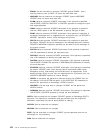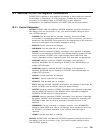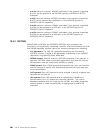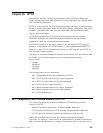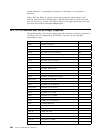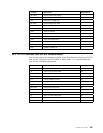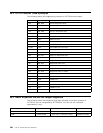
19.2 Control Statements
DFSORT was designed to be functionally compatible with Sort/Merge at the
control statement level, and for the most part, the control statement syntax of the
two products is compatible. However, there are differences in some of the
control statements that you will need to address. Here are the actions, if any,
you should consider taking for each Sort/Merge control statement.
ALTSEQ: Can be used with no changes.
ANALYZE: Must be removed. DFSORT terminates if an ANALYZE statement is
specified. Use DFSORT′s dynamic allocation feature to allow DFSORT to
automatically use the work space needed. Use SORTDIAG DD to produce
diagnostic messages.
END: Can be used with no changes.
INCLUDE: Can be used with no changes.
INPFIL: Must be removed if the INPFIL statement is continued because DFSORT
control statement errors can result. If the INPFIL statement is not continued, it
can be used with no changes. DFSORT ignores all INPFIL operands. The
equivalent information must be available from the input DD statements, input
data set control blocks (DSCB) or catalog.
INREC: Can be used with no changes.
MERGE: Can be used with no changes.
MODS: Must be changed to use DFSORT syntax. User exit routines must be
changed to use the DFSORT interfaces. See the
DFSORT Application
Programming Guide
, SC33-4035 for complete details on the MODS statement and
the interfaces for user exit routines.
OMIT: Can be used with no changes.
OPTION: Here are the actions, if any, you should consider taking for each
Sort/Merge OPTION operand:
•
ADDROUT: Must be removed. DFSORT terminates if this operand is
specified. DFSORT does not support the use of direct-access addresses in
output records. If you want to continue to include such addresses, you must
write an E15 user exit to handle this.
•
CHALT: Can be used with no changes.
•
NOCHALT: Can be used with no changes.
•
DIAG: Can be used with no changes. DFSORT ignores DIAG. Use the
SORTDIAG DD statement to obtain diagnostic messages.
•
NODIAG: Can be used with no changes. DFSORT ignores NODIAG.
•
DUMP: Must be removed. DFSORT terminates if this operand is specified.
Specify a SYSUDUMP DD statement to obtain a dump.
•
NODUMP: Must be removed. DFSORT terminates if this operand is specified.
Do not specify a SYSUDUMP DD statement to suppress a dump.
Chapter 19. SORT 377



